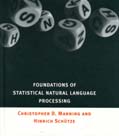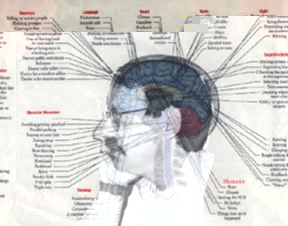6.863J: Natural Language & the
Computer Representation of Knowledge
Spring 2001
When: MW, 9:30AM-11:00AM
Laboratory time to be arranged
Last modified:
| Instructor: Robert C. Berwick | TA: Sourabh Niyogi |
| Email: berwick@ai.mit.edu | Email: niyogi@mit.edu |
| Office: 35-423 | Office: 35-317 |
| Phone: (617) 253-8918 | Phone: (617) 253-1467 |
| Office hours: Weds 12-2 and by appointment | Office hours: TBA shortly |
 New
on this course's web pages:
New
on this course's web pages:
-
 02/06/02 This is the first announcement. PC-Kimmo
documentation is available in class and here.
02/06/02 This is the first announcement. PC-Kimmo
documentation is available in class and here. -
 02/06/02 Please fill out this questionnaire
on your background/interests to help us guide the course . (You should
print it out. It's not an on-line questionnaire.
02/06/02 Please fill out this questionnaire
on your background/interests to help us guide the course . (You should
print it out. It's not an on-line questionnaire. -
 02/06/02 Supplementary notes (pdf) for an overview of
natural language processing to be read in conjunction with Lecture 1, available
here.
02/06/02 Supplementary notes (pdf) for an overview of
natural language processing to be read in conjunction with Lecture 1, available
here.
- Older messages:
- None so far
Prerequisites & Relation to Other Courses:
Students should have some programming experience in a programming language such as Scheme, Lisp, C, C++, Java, and/or Perl. 6.034 is listed as a prerequisite but can be waived by permission of the instructor.The material covered in this course is selected in such a way that at its completion you should be able to understand current papers in the field of Natural Language Processing (NLP). No background in NLP is necessary. All lectures will be published on this page in powerpoint (ppt), Adobe pdf (pdf) and postscript (ps) form; the latter two are more useful for downloading and printing. If you do not have Adobe Acrobat Reader for pdf files on your computer, you can download it from www.adobe.com.
Readings:
- Proceedings of major conferences (related to Natural Language Processing):
- ACL (Association of Computational Linguistics)
- European Chapter of the ACL
- COLING (International Committee of Computational Linguistics)
- ANLP (Applied Natural Language Processing, by ACL)
- ACL SIGDAT, SIGNLL other SIG (Special Interest Groups) Workhops, such as WVLC (Workshop on Very Large Corpora)
- EMNLP (Empirical Methods in Natural Language Processing
- DARPA HLT (Defense Advanced Research Project Agency Human Language Technology Workshops)
Required (available at the MIT Coop, and through Quantum books):
Recommended & Reference Readings (all on library reserve):
 |
Manning, C. D. and H. Schütze: Foundations of Statistical Natural Language Processing. The MIT Press. 1999. ISBN 0-262-13360-1. |
 |
Barton, E., Berwick, R., & Ristad, E.. Computational Complexity and Natural Language: The MIT Press. 1987. ISBN 0-26-02266-4. (Sorry no real cover picture available.) |
 |
Allen, J.: Natural Language Understanding. The Benajmins/Cummings Publishing Company Inc. 1994. ISBN 0-8053-0334-0. |
 |
Brady, J & Berwick, R.: Computational Models of Discourse. The MIT Press, 1983. ISBN-0-262-02183-8 . |
 |
Charniak, E.: Statistical Language Learning. The MIT Press. 1996. ISBN 0-262-53141-0. |
Assignments & Due Dates:
Assignments
This course is lab-oriented; that is, the work of the course is done via a series of laboratory exercises. These will be handed out once approximately every two weeks. There are no exams, in particular, there will be no final exam. The final project will involve an element of non-determinism, i.e., so-called 'free will', in that you will be able to choose your own project and combine elements from the previous laboratories, or do something completely new. For the final project, we will have people work in teams of 2 or 3 (but not more).The laboratory exercises are designed to be carried out on Athena. If you are clever and adventuresome, you are certainly free to download the software used and get it running on your own PC/laptop, but this must be own 'your own nickel' - i.e., we cannot guarantee that you will succeed, nor can we offer technical support to do so.
Turning in the Assignments
When
The assignments are due at the end of class on the due date, i.e., 11:30am.Policies
Lateness
You have up to 30 (thirty) late days to use up, that can be distributed among your laboratory projects. However, the last project must be turned during the last week of class (5/14-5/18), even if you have not used all of your days by then.Once you use up your late days, late projects will not earn any points, even though they might be considered in borderline cases for the final grade. Thus try to turn in all projects, even though you might feel they are not to be counted. If you do not turn in a final (joint) project, you will receive an I (incomplete) for the class, and will have to make this up by next term (the incomplete will note that 80% of the coursework has been completed).
Cooperative Work and Plagiarism
Cooperative work is strongly encouraged; you are free to work together on laboratory assignments. However, aside from the last project, you must write up and turn in your own work. Please write the names of the people with whom you worked at the top of the first page. Exact copies of laboratory reports will not be acceptable. (Something other than your name and those of your co-workers must be different!) The aim of the course (and its pedagogical philosophy) is to learn about natural language processing. You will learn more if you actually do the laboratory assignments.The Assignments
| No. | Due date | Task | Resources |
|---|---|---|---|
|
|
Feb 21 | Word Formation 1: Introduction | PC-Kimmo; www.sil.org/pckimmo/; |
| #1b | Mar 05 | Word formation 1b | spanish.rec |
|
|
Mar 09 | Word Tagging | Brill part of speech tagger; web version of Brill tagger here. |
|
|
Mar 19 | Phrase parsing, Part 1 | deMarcken parser; documentation here[pdf]; sentences here |
|
|
Apr 18 | Probabilistic Phrase parsing | Inside-outside parser; Apple pie parser |
| #5 | Apr 25 | Semantic Interpretation | Syntax-directed semantic inerpretation system |
| #6 | May 16 | Final project | Your own design |
| Open to submissions | Closed to submissions |
Additional resources:
- Lab 1a: englex.tar.gz. (english rules and lexicon)
- Lab 1b: web version of Brill tagger with tracing option (watch out: default language is Swedish): here.
- Guest athena form http://web.mit.edu/accounts/Forms/guest-request.txt
Tentative Course Schedule:
Grading Weights:
| Assignments (1-6) | 70% |
| Final Project | 20% |
| Class Participation | 10% |